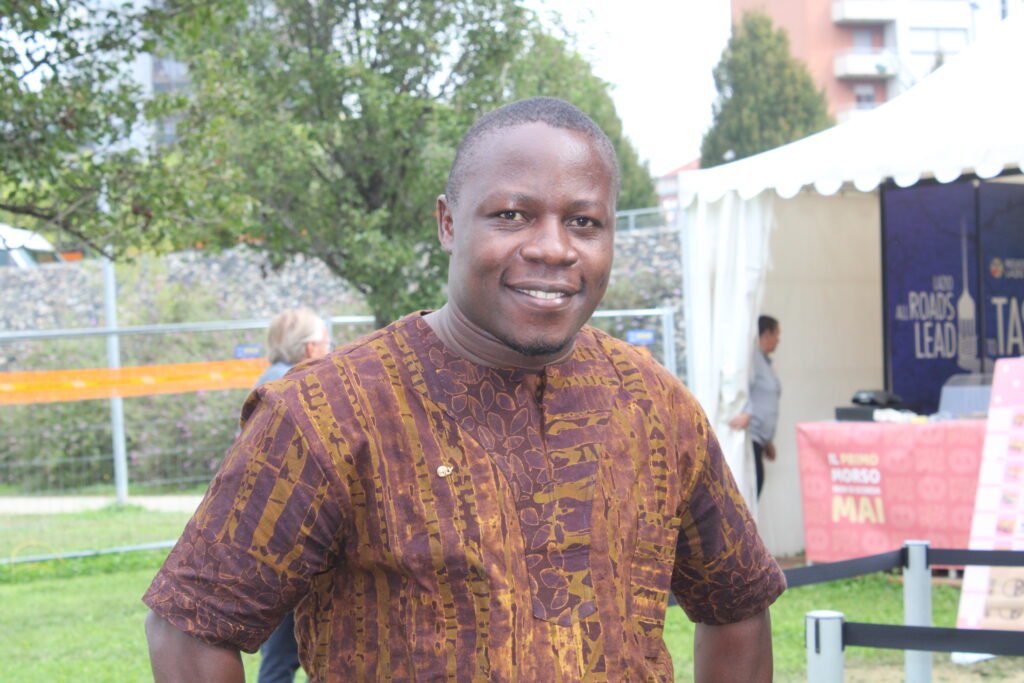By Busani Bafana
As a student, Edward Mukiibi saw agriculture as punishment. Today, the Ugandan farmer and agronomist is leading a movement to change the way we grow and eat food.
As President of Slow Food, Mukiibi champions agroecology, an approach to farming touted as an alternative to highinput industrial agriculture. “Agroecology is the solution, not just for a more sustainable food system, but for addressing inequality, social injustice, and the global environmental crisis,” said Mukiibi, the president of Slow Food. “The agroecology system not only respects nature but also restores the dignity of indigenous peoples and this is the system that we at Slow Food are working with, a people centred food system built on biological, social and economic diversity, of the people on the planet.”
The Slow Food movement is a global good food network of farmers, producers, consumers, and chefs that advocates a transformation of food systems, shifting from high-input industrial agriculture to affordable, environment-friendly and biodiversity supportive approaches that focus on growing more and healthy food while saving the environment, fostering peace, and combating climate change.
“The current food system is working to destroy nature and our soils and pollutes our environment. The current system is producing food in a way that is making climate change even worse. We need to change this system. We are working with thousands of farmers, cooks, producers, restaurant owners and university students and scholars toward ecological transition of the food system. Many policies are coming up now to support agroecology,” he said.
Slow Food has launched Slow Food Farms which Mukiibi says put farmers at the centre of food production and will help educate global members about the power of agroecology in sustainably feeding the world. “The Slow Food Farms focus on how farmers produce the food and promote the voice of the farmers not only in our movement but also in international forums.
We need more discussion about the reality of the food system, something big Ag is trying to prevent,” Mukibi said. Julius Mangi is a farmer from Machakos County, a semi-arid region in Kenya where agriculture is the primary source of livelihood and income.
For the past 25 years, he has been cultivating a variety of indigenous crops—such as maize, pigeon peas, and cowpeas—using agroecological principles. Mangi has observed that farmers growing indigenous crops have food continuously even during lean spells but those growing hybrid crops constantly have to buy seeds from seed shops, where one kilo can cost up to Ksh1,000, compared to Ksh100 for indigenous seeds. “Agroecology works because it takes care of the environment while allowing farmers to grow more healthy crops. Many farmers growing hybrids now rely on us for food and seeds,” said Mangi.
While climate change has reduced crop yields, the impact is less severe for those growing indigenous crops compared to hybrids, Mangi said. Mangi is part of the 10,000 Gardens in Africa project, an initiative by Slow Food launched in 2011 to establish sustainable food gardens in schools, villages, and urban areas to ensure access to healthy, local food. The project, supported by the Slow Food Foundation for Biodiversity, empowers communities to establish and manage their own gardens.
The school garden serves as an open-air classroom which gives children the tools for improving the quality of life of their families. According to Slow Food, traditional knowledge is an important source of wisdom and the basis of technical and scientific knowledge. Mukiibi’s vision is a world where food is produced in harmony with nature, where smallholder farmers are respected, and where everyone has access to good, clean, and fair food

